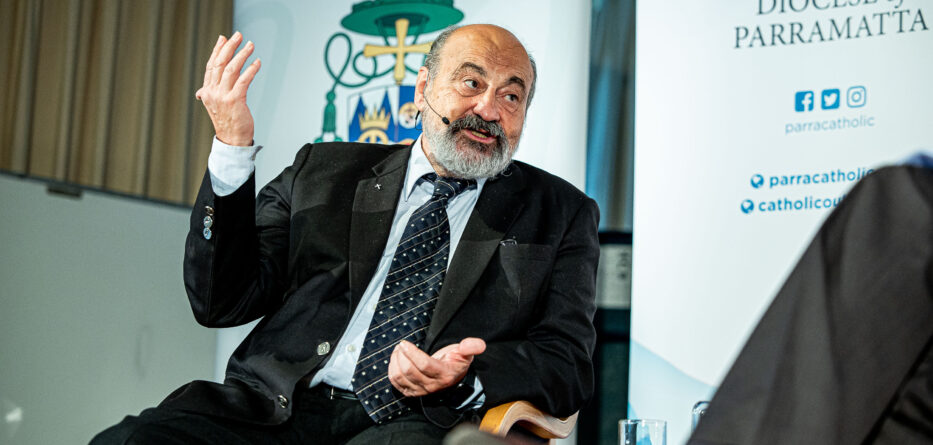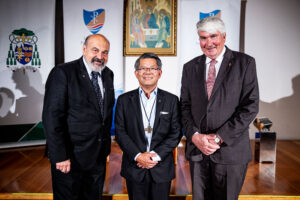Australia’s multicultural makeup and growing secularism is “the image of the future world”, where Christianity, far from destroyed, is being transformed, says prominent Czech theologian, philosopher and priest Monsignor Tomáš Halík.
In the country recently as a guest of the Diocese of Parramatta for a series of public lectures and talks in Parramatta, Sydney and Melbourne, Monsignor Halik praised what he saw in Australia as an understanding by many that dialogue – especially through Pope Francis’ process of synodality – was necessary to the future of the Church.
He said it was not simple for people of different faiths and cultures to live together. Equally, it was difficult for the Catholic Church in Australia, and elsewhere, to deal with internal tensions – “that is sometimes more complicated”, he said.
Likewise, the Church needed to better engage those on the margins of faith, the “seekers” and agnostics, as the number of people who identified with organised religion continued to decline, he said.
“I see Australia as the image of the future world – this multiculturality and also the secular character,” Monsignor Halik said in an interview with Catholic Outlook.
“The process of secularisation has not destroyed Christianity, but [will] transform it, and this process of transformation is ongoing.
“Part of the substantial task of the Church is to accompany those seekers…in dialogue and respect.
“The mission today is not just to push the people into the existing structure of the Church, but to go in mutual dialogue to find this common way.
“I think the synodal reform is a great sign of the times, and I met many people in Australia who understand very much this sign of the times, and it is for me a great pleasure.”
God is absolute mystery
This approach was important, Monsignor Halik said, because the “spiritual climate” had changed for many people, who might not call themselves believers, but had “sensitivity and openness” to God.
Just like the fall of the Berlin Wall, he said the wall between believers and non-believers was collapsing, to the point where many people wrestled with both.
“The dialogue between belief and unbelief is inside of many people, and I think we should cultivate it,” he said.
“We need each other. We need some critical feedback to our traditional concept of God and language about God.”
He said Christians did not own the truth about God, but were merely followers of Jesus, and as such had to accept doubt and uncertainty as part of their faith.
“God is absolute mystery, and faith is the courage to enter the cloud of mystery, live in mystery and with mystery,” he said.
Sometimes this meant confronting the “silence of God”, when He is hidden during times of crisis or doubt. Monsignor Halik said it was important to “find a good answer to this silence”: not to deny God existed, or ignore this silence with “emotional Hallelujah Hallelujah”.
Rather it was better to express patience with God through love, hope and faith.
“Hope without patience is not hope; faith without patience is not real faith, it’s ideology; and love, you know it from relationships with other people, love without patience is not real love,” he said.
Even when God is not silent, such as in the Revelation in Jesus Christ, patience is needed, he said.
“There must be behind our certainties, behind our Catechisms, behind all the dogmas, also an open space for seeking and for the quiet adoration.
“We are not aware of our whole truth; St Paul says we see only like in the mirror, only partly…we must be patient, we must be sensitive to the many ways that God is present in the world and in our life. God is present in all things, our task is to see Him.”









